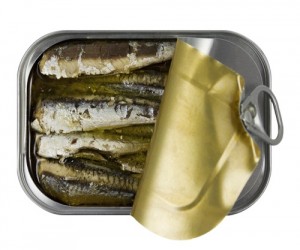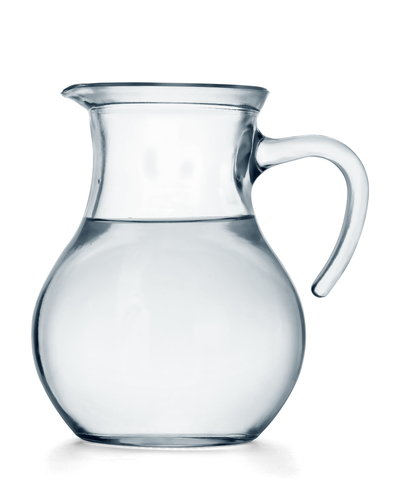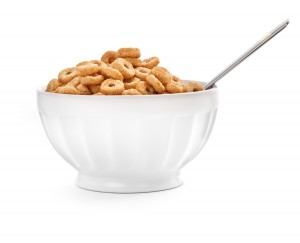You know money woes, PMT and lack of sunshine could make you grumpy but there may be less obvious reasons you’re sadder than usual or feeling snappy, irritated or like clobbering someone

Appletise or mixing mineral water and fresh lime will give you a chemical free fizzy hit. But if it’s the caffeine you want, keep your Pret habit instead – the same study found that people who drank up to four cups of coffee a day were ten per cent less likely to be depressed.
2. YOUR DRY-CLEANING That hard-core cleaning spray under the sink, your dry-cleaning and even that plastic water bottle on your desk could add to your ‘chemical load’ – that’s the sum of the chemical parts you’re exposed to in daily life – and affect the way you feel. ‘Some chemicals pass the brain-blood barrier so when you inhale chemical fumes, they are absorbed through the lungs and sinuses and will get into the blood and this has the potential to trigger a reaction in the brain in the form of irritability or other mood swings,’ says London naturopath Sarah Bowles-Flannery. ‘Some chemicals are solvents which means they dissolve fats in the body . As the brain and the neurons that fire feelgood chemicals in the brain need fat to function, an over exposure to chemicals could upset this balance’.
Some people have a condition called Multiple Chemical Sensitivity or MCS she explains which can make you more susceptible to mood changes. Other symptoms include allergic symptoms or headaches when you’re exposed to perfumes or rashes and skin issues. Use glass to store your desk water and food at home as plastics leech chemicals called ‘pthalates’ into food or water that can disrupt your hormone balance, says Bowles-Flannery. If you love hard cleaners, opt for rinse off versions rather than those left on surfaces or go organic. We love Bio-D’s anti-bacterial cleaners without nasty chemicals from £2.99 – actually Bio-D are just brilliant (not on the payroll, promise – biodegradable.biz). Other sources of inhaled chemicals include dry-cleaning, new car interiors and flame retardants on new furniture and carpets.
3. THE COLD YOU HAD LAST MONTH Have cold, feel like s*&t. Cold gone, mood improved, right? Not always. When you’re fighting a cold, the immune system releases defensive molecules called cytokines that cross the brain-blood barrier and cling to neurons that govern emotions, making you sad, introverted and generally woe-is-me until the cold passes. But sometimes the low mood effect continues long after you’ve stopped feeling sick, keeping you in low spirits for weeks or months. Really. ‘In particular, viral infections such as glandular fever or Epstein-Barr virus, but even a nasty case of flu can leave you with a post-viral syndrome where people can feel quite low for weeks or even months following,’ says GP Dr Catherine Hood.
Your low mood will eventually lift, says Dr Hood. ‘Help your immune your system during and after the infection by drinking more water, increasing your intake of fruit and vegetables to ten a day if you can, going for a daily walk outside and increasing your intake of fish and lean meat,’ she advises. For a low mood that won’t shift, a course of Healthspan’s St. John’s Wort Mood Relief £12.45 might help as it contains mood-enhancing St-John’s Wort along with immune benefits from B vitamins and folate (but talk to you doctor first as it can interfere with medications like the Pill).

We have to get our omega-3s from somewhere as the body doesn’t make them so opt for salmon, herring, mackerel or sardines a few times a week and snack on omega-3 rich walnuts or almonds – or make this the one supplement you take. ‘Omega-3 fats all contain two essential fatty acids, EPA and DHA and those that contain more EPA are proven to help mood,’ says Dr Lorimer. Look for at least 7-800mg EPA on the label.
5….AND/OR MEAT If you’re distracted and grumpy, your mainly veggie diet could be to blame. Iron is needed for red blood cells to carry oxygen to the brain and studies have found that low iron stores can inhibit concentration and make you feel tired and down. ‘People on a low or no red meat diet are often low in iron, even if they eat lots of chicken and fish and even if they’re not shown anaemic on blood tests,’ says Dr Auldric Ratajczak, a Nuffield Health GP. ‘You can still get moody on the low end of normal iron levels.’ Indeed, one study found that while only nine per cent of women qualified as anaemic in blood test, nine out of ten of them had low iron stores making them feel low and irritable.
If you’re also unusually pale, tired and your lower eyelid or tongue are whiter than they should be or if you have heavy periods or have just switched from the Pill to the coil and have had heavier than normal periods you may be anaemic so ask your GP for a test, says Dr Ratajczak. ‘But even if you’re not anaemic, you may feel better with higher iron levels so try taking an over the counter iron supplement for a couple of months and see if your mood and energy improves,’ he suggests. ‘These are generally better than prescribed versions which can cause constipation.’ Try Spatone £9.95 from Boots which is an iron-rich water-based supplement that’s natural and easy to absorb. Food sources include lean red meat and especially liver but for veggies, pumpkin seeds, dried apricots, tahini and sun-dried tomatoes are packed with iron too.

‘Drink your water at regular intervals throughout the day until your urine is a pale yellow. Too orange is lacking in water and clear is an indication that there’s too much water in the cells which could strain the kidneys.’ Watch hidden salts in surprising places such as breakfast cereals and packet soups which could increase the rate at which you get dehydrated, she suggests. ‘You can also get lots of water from high water foods such as berries, citrus, watermelon, spinach and lettuce,’ she says.
7. YOUR THYROID The thyroid is like a gas pedal for the body, says Dr Ratajczak. ‘If it’s underactive your metabolism starts slowing down and you may lack energy and show depressive symptoms such as lack of motivation and drive along with weight gain and sensitivity to cold,’ he says. ‘About seven per cent of the female population will have an underactive thyroid and much of that will go undiagnosed and unchecked, with women thinking they’re simply depressed.’ On the other hand, an overactive thyroid can lead to symptoms of panic and anxiety, he says. ‘Being over-enthusiastic about everything or anxious and irritable can be signs of an overactive thyroid as it increases blood pressure,’ explains Dr Ratajczak. ‘It also increases increases thirst and also body temperature so you might find yourself throwing off the covers at night and feeling hot most of the time. Either way, it needs to be checked as over time it wears the body out and can make you ill and exhausted.
Your doctor can do a routine test to measure your body’s thyroid function but sometimes you may have a normal thyroid test but still have symptoms.because GP tests don’t measure how your body is converting and storing thyroid hormones. ‘You may have ‘sub-optimal’ thyroid function but have a normal test wth your GP,’ says Jackie Lynch, a nutritional therapist. ‘If you continue to have high or low thyroid symptoms your GP can do further investigations,’ she says. ‘If you suspect you have borderline low thyroid function, eating foods high in an amino acid called tyrosine such as fish, chicken, pumpkin seeds and avocado can help as can avoiding ‘goitrogenic’ foods such as raw spinach, broccoli or cabbage – they’re fine cooked – pine nuts and soya beans as they might further slow the thyroid.’
8. YOUR BREAKFAST Bagel? Cereal? There are two ways your morning fuel up could be affecting your mood. First, a food sensitivity to anything from wheat to dairy or soy could be affecting your body’s digestion and have a knock on effect on your mood. ‘Some 90 per cent of the body’s serotonin, the brain’s happy hormone, is produced in the gut which is often referred to as the second brain,’ says Dr Gill Hart, a nutritional scientist. ‘Plus, research has shown that depression is often associated with gastrointestinal inflammation, a common symptom of food intolerance.’ Intolerance to foods such as wheat, dairy and the gluten in common foods like bread, cereal and pasta has been associated with mood symptoms, says Sarah Bowles-Flannery. Secondly, if you find yourself losing it like clockwork mid-morning each day, you can directly blame your breakfast. ‘Breakfast bars, most breakfast cereals and any refined carbohydrates eaten around 8am will lead to a crash 30 minutes to two hours later,’ says Dr Glenville.
An igG test with a nutritional therapist can uncover food intolerance. Or try a home-testing kit such as York Test Food and Drink Scan (£299 from yorktest.com) which measures your tolerance of 158 foods. Opt for protein-based breakfasts such as eggs or add some protein foods such as nuts to porridge or a low sugar cereal such as Shredded Wheat. ‘You can also slow the rate at which your body absorbs any food by adding fat to a meal such as butter to wholewheat toast, cooking an omelette in olive oil or a teaspoon of coconut oil to a smoothie.’ We like Coconoil Original Virgin Coconut OIl £6.99 (from amazon). Check yoghurts and cereal for sugar content as anything over four grams – about a teaspoon – of sugar could raise the blood sugar and lead to a crash later.
Like this article? Sign up to our newsletter to get more articles like this delivered straight to your inbox.














































































































